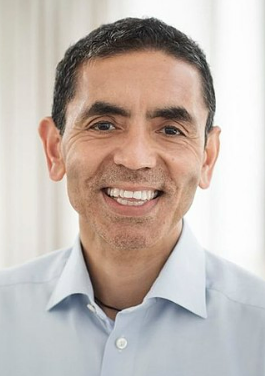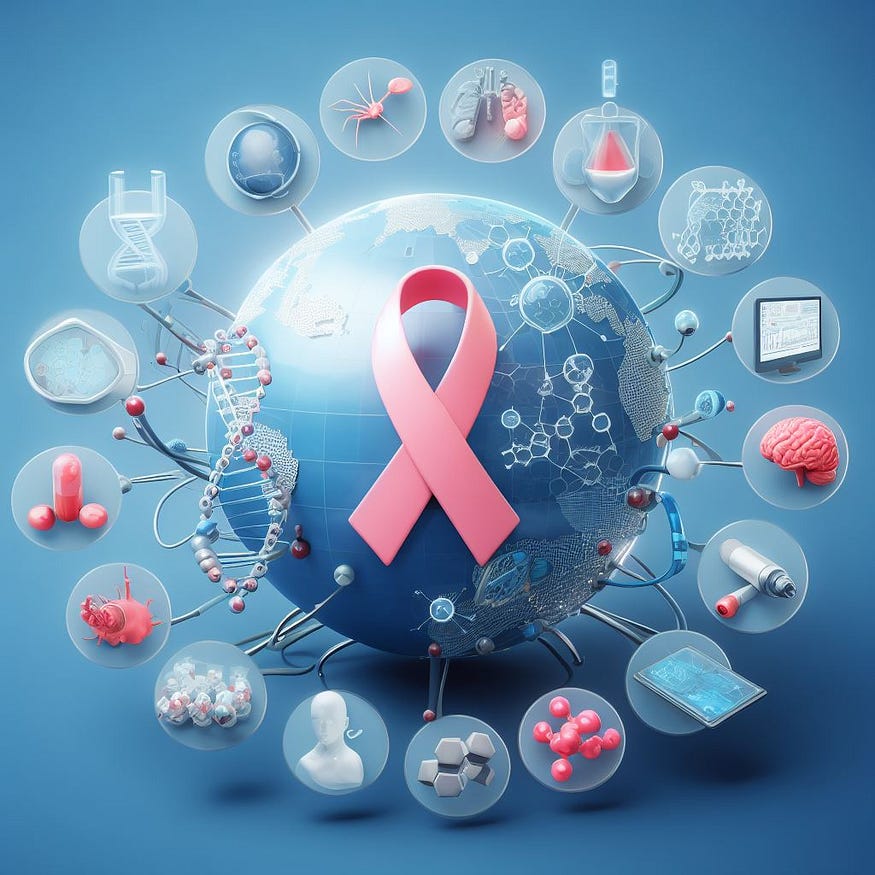New Cancer Treatment, A Breakthrough
New Cancer Treatment, A Breakthrough
In a remarkable development in the realm of cancer treatment, two Turkish scientists, Dr. Uğur Şahin (58) and his wife Dr. Özlem Türeci (56), co-founders of BioNTech, have unveiled groundbreaking progress in halting tumour growth and reducing tumour size during the initial trials of their revolutionary cancer vaccine. In this blog post, we’ll dive into this extraordinary achievement and explore its potential implications for the future.


Cancer Treatment on the Horizon
Dr. Uğur Şahin, one of the visionary minds behind BioNTech, has shared his excitement about the possibility of their innovative cancer treatment being available as early as 2026. This revelation marks a significant milestone in their tireless quest to combat various cancer types, including lung, pancreatic, and colon cancer. Dr. Şahin expresses confidence that these life-changing drugs may hit the market within a few years.
A Multifaceted Approach to Tackling Cancer
The dynamic duo, Dr. Uğur Şahin and Dr. Özlem Türeci, have been relentless in their pursuit of effective cancer treatments, particularly for lung, pancreatic, and colon cancer. These trials are progressing exceptionally well, offering renewed hope to countless patients. Dr. Şahin points out, “In the next two years, we will move on to new trials, focusing on lung, pancreatic, and colon cancers. After receiving approval from the necessary authorities, we aim to make these drugs available to patients from 2026.”
Their groundbreaking approach revolves around harnessing the body’s natural defences against cancer, with a particular emphasis on lung, pancreatic, and colon cancers. This dedication to eradicating these forms of cancer has only intensified following their remarkable success with the mRNA vaccine during the COVID-19 pandemic.
Expanding on Their Success: A Therapeutic Cancer Vaccine
BioNTech’s co-founders, Dr. Uğur Şahin and Dr. Özlem Türeci, recently made waves with the rapid development and global distribution of their mRNA vaccine for COVID-19, administered to over 1.5 billion people worldwide. They’ve now set their sights on creating a therapeutic vaccine for lung, pancreatic, and colon cancer by 2030, underscoring their unwavering commitment to medical advancements.
Promising Results from Initial Cancer Vaccine Trials
At the European Society for Medical Oncology (ESMO) Congress in Madrid, Dr. Şahin and Dr. Türeci unveiled promising results from their 15-year effort to develop a cancer vaccine. The vaccine was administered to a group of 44 patients, with astonishing outcomes. It resulted in a 30 percent reduction in tumour size for 59 percent of the subjects, while cancer ceased to progress in 95 percent of participants. Some experienced manageable side effects during vaccine administration, such as inflammation reactions, lowered blood pressure, and elevated body temperature.
A Visionary Mission for 2030
BioNTech’s ambitious vision extends to treating approximately 10,000 cancer patients with lung, pancreatic, and colon cancers by 2030. Dr. Şahin had earlier mentioned that these cancer drugs could reach the market within a few years, in line with their relentless commitment to transforming cancer treatment.
The Future of Cancer Treatment
The announcement of BioNTech’s promising cancer vaccine represents a beacon of hope in the battle against relentless diseases, such as lung, pancreatic, and colon cancers. Dr. Şahin, along with Dr. Türeci and their dedicated team, has demonstrated that their commitment to scientific innovation knows no bounds. As we eagerly await the development and release of their cancer treatment for these specific cancers, it’s clear that their legacy as pioneers in the field of medical science is poised to continue, bringing new possibilities for patients worldwide.
BioNTech: A Leader in Medical Innovation
BioNTech, a German biotechnology company founded in 2008 by visionaries like Uğur Şahin, Özlem Türeci, Christoph Huber, and others, specializes in cutting-edge mRNA-based therapies, primarily focused on addressing cancer and infectious diseases. Their dedication to medical innovation is evident in their diverse range of pharmaceutical candidates based on mRNA, designed to serve as individualized cancer immunotherapies. Beyond mRNA, BioNTech has ventured into cell therapy, novel antibodies, and small molecule immunomodulators, expanding the spectrum of treatment options for various forms of cancer.
Collaborative Endeavors for Progress
BioNTech’s commitment to advancing cancer research is further exemplified by its collaborations with various companies and institutions. Partnerships with entities such as Sanofi, the Bill & Melinda Gates Foundation, and the European Investment Bank have provided essential funding and support to propel their pioneering work forward. The company not only fosters collaborations but also takes the lead in filing numerous patent applications and publishing extensive research results, particularly in the realm of mRNA mechanisms.
Clinical Trials and Innovations
BioNTech’s journey to revolutionize cancer treatment has taken concrete steps with clinical trials in the United Kingdom for mRNA-based immunotherapies targeting multiple cancer types. These trials represent a significant stride toward translating their groundbreaking research into tangible solutions for patients in need. Additionally, BioNTech’s commitment to innovation has led to strategic acquisitions. Notably, they acquired Instadeep, a British startup specializing in artificial intelligence for drug discovery, design, and development. This strategic move underscores their dedication to staying at the forefront of medical innovation, offering new hope to those affected by cancer and infectious diseases.

Comments
Post a Comment